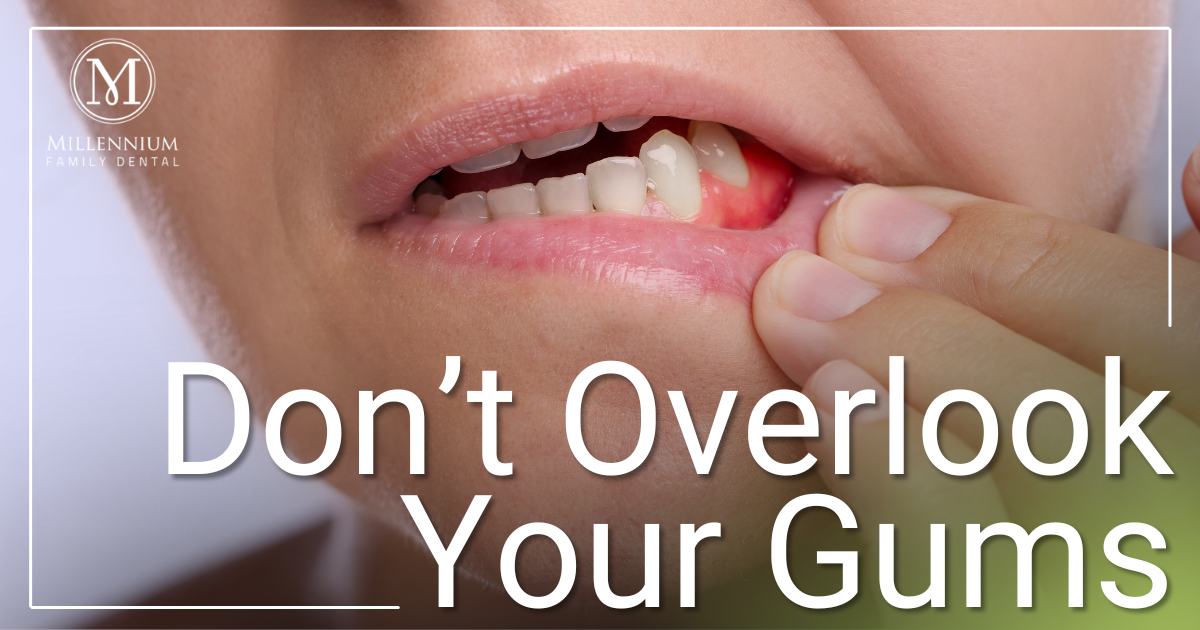Do You Know The Early Signs Of Gum Disease?
Most people think of their teeth first when it comes to oral health. But your gums play just as important a role in keeping your mouth and your whole body healthy. Gum disease, also known as periodontal disease, is one of the most common oral health issues. According to the CDC, more than 50% of adults over the age of 30 show signs of it. The good news? Gum disease is preventable, and when caught early, it can be reversed. Read on to learn about the early signs of gum disease.
What Is Gum Disease?
Gum disease begins when bacteria in plaque and tartar irritate your gums, leading to inflammation. In its earliest stage, called gingivitis, you might notice symptoms like redness or slight bleeding when brushing. If left untreated, gingivitis can progress to periodontitis, a more serious condition that can damage the bone supporting your teeth.
Common Early Warning Signs
Knowing the early warning signs of gum disease can help you take action before it progresses. Here are a few red flags to watch for:
- Bleeding gums when you brush or floss
- Red, swollen, or tender gums
- Persistent bad breath that doesn’t improve with brushing
- Receding gums that make teeth look longer
- Sensitivity when eating or drinking
Even if the symptoms seem minor, they shouldn’t be ignored. Gum disease is easier to treat in its early stages.
Why Early Treatment Matters
When gum disease progresses, it doesn’t just threaten your teeth and gums; it also starts to affect your overall health. Research has linked periodontal disease to serious conditions such as heart disease, diabetes, respiratory problems, and even complications during pregnancy. By treating gum issues early, you’re not only preserving a healthy smile but also reducing risks that impact your whole body.
How Gum Disease Is Treated
Early stage (gingivitis): Professional cleanings combined with better brushing and flossing habits at home can usually reverse the problem.
Moderate cases: Scaling and root planing, a deep-cleaning procedure, removes tartar buildup below the gumline.
Advanced cases: More intensive treatments may be needed, but the goal is always to stop further damage and preserve your natural teeth.
Prevention Starts at Home
The best defense against gum disease is a consistent oral care routine. This includes brushing twice a day, flossing at least once daily, and using an antimicrobial mouthwash if your dentist recommends it. Regular dental checkups and professional cleanings are also essential. Think of it this way: your toothbrush and floss are your first line of defense, while your dental team is the backup support that ensures your gums and teeth stay healthy for the long run.
The tricky thing about gum disease is that it often doesn’t cause pain in the early stages. Many people don’t realize anything is wrong until significant damage has occurred. That’s why regular dental visits are so important; they allow us to catch issues before they become serious.
Take the Next Step
At Millennium Family Dentistry, located in Meridian, ID, we believe knowledge is power. If you’ve noticed bleeding gums, bad breath, or any of the early warning signs listed above, don’t brush it off, literally or figuratively. The sooner we see you, the easier it is to keep your gums and smile healthy. Schedule an appointment with us today.










